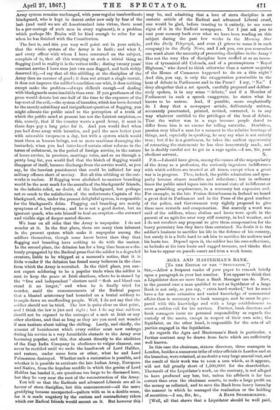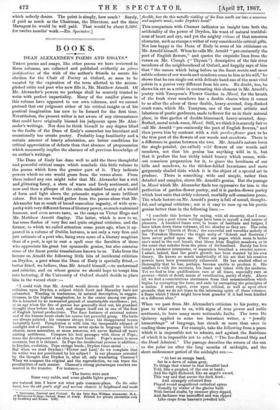AURA. AND MASTERMAN'S BANK.
[To THE EDITOR OE THE "SPECTATOR."] SIR,—Allow a frequent reader of your paper to remark briefly upon a paragraph in your last number. You appear to think that a Liquidator does no more than a Bank Manager can do. Now, in the general case a man qualified to act as liquidator of a large Bank is not only, as you say, " extra hard-worked," but be must have a far more extensive and varied knowledge of commercial affairs than is necessary to a bank manager, and he must be pre- pared with this knowledge and with a large establishment to meet a sudden call for his services. Further, bank directors amid bank managers incur no personal responsibility RS regards the custody of the assets, except in respect of their own acts ; the liquidator, on the other hand, is responsible for the acts of all parties engaged in the liquidation.
As regards the Agra and Masterman's Bank in particular, a further contrast may be drawn from facts which are sufficiently well known.
In this case the chairman, sixteen directors, three managers in London, besides a numerous tribe of other officials in London and at the branches, were retained, at no doubt a very large annual cost, and the result of their work was to wins a sum which, as it appears, will not fall greatly short of 1,500,0001. for the shareholders. The result of the Liquidator's work, on the contrary, is not alleged to have produced any loss, but, unless his affidavit is far leas correct than even the chairman asserts, to make a large profit on the money as collected, and to save the Bank from heavy losses by the manner in which he managed the realization or the holding of securities.—I am, Sir, &c., A BANK SHAREHOLDER. [Well, all that shows that a Liquidator should be well paid, which nobody denies. The point is simply, how much? Surely, if paid as much as the Chairman, the Directors, and the three Managers he would be well paid. That would be about 6,5001. for twelve months' work.—En. Spectator.]































 Previous page
Previous page